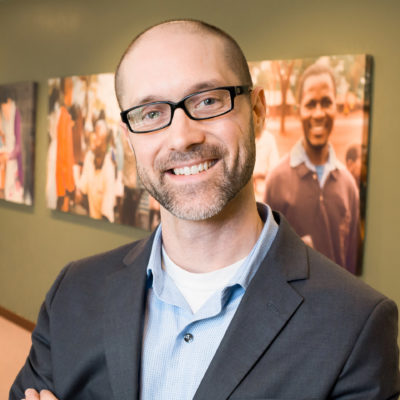
Apathy and Lack of Commitment in Your Students? Do These 4 Things
I received the call from mom. “My daughter won’t be able to make the retreat this weekend; she has too much homework and several college essays to write.” I am sure you have heard this one or something like it. In a long list of to-do’s, youth group consistently finds itself at the bottom. On the one hand, you feel the need to respect the student’s commitments, but on the other hand, can’t help but think there are some priorities that need to be reordered. In a perfect world, our students and their parents would make church, youth group, retreats, and mission trips a top priority. In an ideal world, the to-do list would just have to wait, because there are more important things to do.
Unfortunately, the reality is, we are in heavy competition with everything else students are involved in. And their lists are getting longer. But what I have seen with this new generation of students is that just providing fun is not moving youth group up on their priorities. Getting our kids to commit is no small task—with no guarantees. But if we can shift the focus from attendance, fun, and games to depth and practice of discipleship; I have found that the deeper we go, the more students value the time. It will no doubt take some time, but doing these four things will pave the way for a more profound experience for your students and therefore begin to foster a greater level of commitment to the ministry.
Elevate The Standard
I am sure that you have heard the phrase, “anything worth doing is a challenge.” Or something similar. We expect our kids to practice, struggle with new ideas, new activities, and new relationships. But we often change our expectations when it comes to the faith of our kids. We prefer it come easy, natural, and without challenge.
During my first year of teaching, I made the conscious effort to challenge my students—to essentially make Bible class more difficult. Before my arrival, it was little more than a social gathering with a mere mention of Jesus. I was convinced the students needed more. Now I would like to tell you that everyone jumped on my bandwagon, showered me with thank you gifts, and fully supported everything I was trying to accomplish. Not even close. The vast majority of students and parents were livid at my decision. Some even threatened to pull their student from the school. It took time, but I stayed the course.
And it paid off.
A few years later, students and parents began to see the benefit of what I was trying to do. But let me be clear, I made a ton of mistakes and at times made class far too difficult. But by raising the bar students began to see and believe in the importance of theological study. The importance of studying the Bible was elevated to the same level of importance as subjects like Chemistry, Calculus, and Biology.
Challenge adds value. Things of value are given priority attention.
Equip With The Right Tools
Back in the days when I coached football, I had the incredible privilege of a brand new team with many players who had little to no experience of the game. So as the season approached I made it my mission to equip my players with every possible resource I could. We did film study, agility drills, and weightlifting. We took the time to explain the why behind every play and every defensive package. It was imperative that the players were properly prepared—for their success and safety. Success means proper equipping and training.
And this is true for nearly every aspect of life. It is not wise to jump into something ill-prepared. To do so means jumping into certain failure. So when it comes to our student's spiritual training and development, preparation is non-negotiable.
Engage With Experiences That Teach
What every athlete and musician knows is often forgotten by pastors, parents, and teachers. Our muscles have memory. And that includes our brains. It is a muscle. This is precisely why athletes and musicians rely so much on repeating the right movements and in the right order over and over and over again. The more something is repeated, the more natural it becomes.
The same logic applies to spiritual growth. It is a muscle we have to train and exercise. If we want our students to grow as disciples, live the Christian life, love others unconditionally, share and defend their faith, and build the kingdom, we have to provide them opportunities to practice. We do that by engaging them in as many experiences as possible—the kind of experiences guaranteed to teach valuable lessons.
But also just like practice, it is not the real thing. Practice is slower, more intentional, and done in the presence of a coach. There has to be a controlled environment that provides the right correction and encouragement. As a youth leader, you also have to think like a coach. And just like a coach, design your practices with the outcome in mind. What are your students going to encounter outside the walls of the church? What strategies do they need? What tools are going to be necessary?
Embody A Life of Discipleship
This one is simple. You can’t teach what you can’t, don’t or won’t do. Only disciples can make disciples. This means you have to continue being a student. You have to continue to practice and be mentored yourself.
I wish I could tell that in my experience these four strategies solved all my problems getting students to keep spiritual growth as the greatest priority. I can’t. But I can tell that raising the bar, giving them the right tools, letting them use those tools in everyday experiences, and as leaders, modeling all of it for them. I recently spoke at a retreat using each of theses strategies in each session and interactions with the students. When some students were asked what their favorite part of the retreat was—the teaching. Trust me. They want to be challenged. They want to see spiritual growth as important. But we have to help them see it.
Steve Kozak
Executive Director of AwanaYM
Steve currently serves as the Executive Director of AwanaYM. Previously, Steve spent over a decade teaching high school theology and apologetics from Detroit to LA. Steve holds a Masters degree in Theology from Moody Theological Seminary and a Masters in Christian Apologetics from Biola University. Steve is also an adjunct professor at Trinity International University. He speaks and writes on youth ministry, youth culture and apologetics. He resides in Chicago, IL with his wife and four children.FollowSteve Kozak on Twitter: stevenmkozak
Comments
Get the AwanaYM Update
Receive youth ministry resources in your inbox. Subscribe today!
